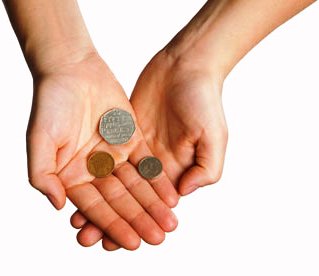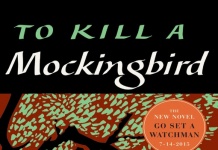 Over the past few days, a wealth of information has surfaced regarding the $69 million settlement three of the so-called ‘Agency Five’ publishers will be paying to 54 states and U.S. territories for the alleged price-fixing of e-books.
Over the past few days, a wealth of information has surfaced regarding the $69 million settlement three of the so-called ‘Agency Five’ publishers will be paying to 54 states and U.S. territories for the alleged price-fixing of e-books.
Still, information regarding what we consider to be two of the case’s more immediately fascinating aspects—the cash refunds due to consumers, and the supposed changes this settlement (and the DOJ case in general) will ultimately have on the e-book industry—are still proving a bit tough to come by.
For instance, in regards to the refunds that some consumers will be receiving: How much money, exactly, will they receive? How and when will they receive it? Do they need to apply for the refund, perhaps by filling out a form online? If so, which website should they visit? And what of those consumers who may have purchased e-books with prepaid debit cards, and didn’t save their emailed receipts? As far as cash refunds are concerned, are they out of luck altogether?
Almost certainly, the answers to all those questions and more are out there, somewhere. We intend to follow this story as it develops, because we’d ultimately like to provide you—our readers—with a post that can act as something of a one-stop shop that will answer all your questions about the real-world affects this case will have on consumers of e-books.
Here are just a few of the details we’ve uncovered thus far:
According to Publishers Weekly, “consumers who bought e-books from April 1, 2010 to May 21, 2012 … will eventually be able to claim a check or a credit of up to $1.32 per e-book pending the deal’s approval by the court. And thanks to the digital trail that comes with e-books, the process should move quickly and easily—that is, once it makes it out of the courts.”
Also from Publishers Weekly, “the distribution process [of checks or credit] will begin upon ‘preliminary approval’ by the court, at which time notice of the settlement will go out to consumers directly from the retailers from whom they purchased their e-books—for example, Amazon, Barnes & Noble, etc. Notice will be made by e-mail, and also via advertising in newspapers and other media. In order to protect privacy, consumers will be identified by ‘unique numbers’ rather than by name.
No further action is necessary on the part of consumers, according to the Publishers Weekly report, with the exception of those consumers who would prefer a check over credit, or vice versa, or those consumers who would prefer to opt out of the program completely. If no action is taken by a particular consumer within 60 days of the email notification, according to the report, a credit will be applied to the consumer’s retailer account(s), which can then be applied to purchases of print books or e-books. Compensations will be issued 30 days after the court grants a final approval, which could take months at this point.
The amount refunded is based on a formula that considers the specific title and when it was purchased. For e-books included on the New York Times bestseller list, $1.32 will be refunded. For books not on the list and sold within a year of initial publication, the distribution will be $0.36 per title. Consumers will receive $0.25 for e-books that were purchased more than a year past their initial date of publication. And for books that fall into neither category, buyers will receive $0.30 per book. Other factors, such as books that were purchased via Google or Sony, will affect the total return amount.
Interestingly enough (according to PaidContent), even though “Macmillan and Penguin are not settling … the states’ settlement [will] provide payouts to consumers who bought ebooks from Macmillan and Penguin as well.” PaidContent also points out that “Sony will inform customers that checks will automatically be issued, [while] Google customers will be directed to submit a claim on a settlement website.”
* * *
In regards to the question of how this particular settlement and the price-fixing case in general will affect the future of the industry itself, many expect price drops. The Boston Globe speculates e-book retailers including Barnes & Noble and Kobo may feel inclined to drop prices in hopes of remaining competitive with Amazon. They estimate e-books that were previously in the $12.99 to $14.99 range may begin moving closer to $9.99 in the coming months.
In total, Hachette will pay out $31,711,425 in the settlement, HarperCollins will pay $19,575,246, and Simon & Schuster will pay $17,752,480 (for a total of $69,039,151). According to The Verge, “the trial against those who remain in the antitrust suit—Penguin, Macmillan and Apple—is scheduled to begin in June 2013.”


































Cool, a refund that can be used to buy more ebooks. Oh, but not from the publishers who are paying the refund, from an indie or self pubbed author, because the ebooks from the big 6 will still be overpriced.
This will especially benefit readers of non-fiction: I have bought dozens of Kindle books that were priced close to the hardcover price.
No money back for me, as I refused to buy an book under agency pricing. And now I find that I do not miss them – I’m having a great time exploring small publishers and indie authors. So even with this settlement, and even if prices go back to $9.99 for best sellers, that price point has become too high for me.
I would rather see the major publishers focus on formatting, editing, and wider selections not bestsellers or series. $12.99 or $14.99 isn’t an insurmountable expense for quality novels or non-fiction, at least I don’t think do.
Take the chump chance payouts and hire more editors and programmers instead. What is more likely to happen is the publishers will let a few employees (not the CEO) go and cut back on other expenses to cover the costs of the settlement. Then what?
I’m not sure why this information is “hard to come by”. See, for example, http://www.scribd.com/doc/104433816/Memo-in-Support-of-Plaintiff-States-Motion-for-Preliminary-Approval-of-Settlements-Copy
The information published in this article is essentially correct. I say “essentially” mostly to cover my backside, because it’s possible I overlooked something. Also, the “no further action is necessary on the part of consumers” fails to note that Google customers will have to file for their refunds. I personally suspect the same will be true for those who bought from smaller retailers like Diesel, but that’s just my guess.
And yes, Penguin and Macmillan titles are included. “Purchasers from non-settling publishers have claims against the Settling Publishers under the well-established rule of joint and several liability for co-conspirators under the antitrust laws.” In the event that Penguin, Macmillan, and/or Apple settle or the plaintiffs prevail against them, additional refunds may be forthcoming, again for e-books from all of the Agency 5 publishing houses.
@PA Wilson: part of the settlement is that the three settling publishers will accept the contracting restrictions in the DoJ proposed settlements. The publishers would no longer be able to forbid discounting, and Amazon has clearly indicated that they’re planning to go back to pricing bestselling e-books below-cost as soon as that happens.
No money back for me, I am in Canada – all the “benefits” of agency pricing, without legal remedy. I would take a buck a book, believe me !
No refunds for purchasers living outside the U.S.? Bummer. (I live in Australia.)
I’d love to see the prices come down, though. I went through my too-expensive-to-buy list last night, and all those titles are still between $12 and $20, which is way out of my price range. This bites particularly hard when the new paperback is $7.99.
However, I’ll just wait for those titles to come down in price. In general, Agency and geolims have driven me to the indies and small publishers, and I’m not regretting the move. 🙂